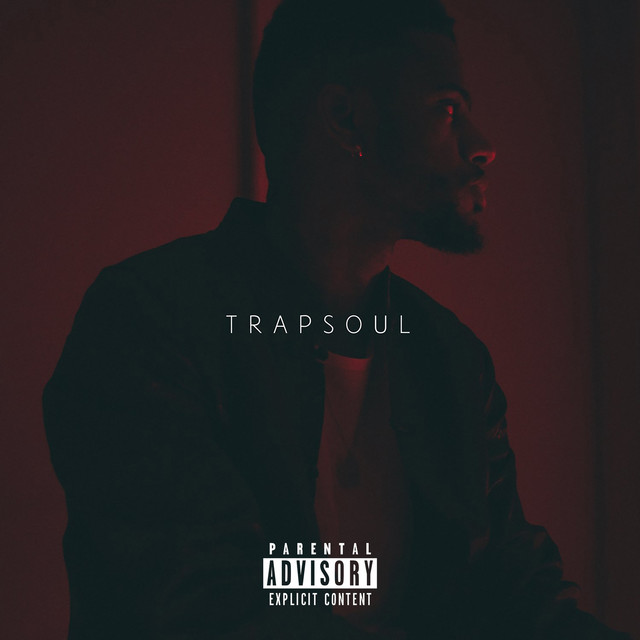Music is often a tapestry woven from many threads, and sampling is one of the most fascinating techniques artists use to create new sounds. In the case of Bryson Tiller's hit song "Don't," the sampling choices elevate the track, adding layers of meaning and emotion. This article delves into the origins of the sample used in "Don't," exploring the nuances of both Tiller's work and the song that influenced it.
As we dissect the intricacies of "Don't," we will uncover not just the song's roots but also how sampling shapes contemporary music and influences the listening experience. The power of sampling lies in its ability to connect different generations of music lovers, bringing forth nostalgia while simultaneously pushing the boundaries of modern sound. Bryson Tiller’s "Don't" exemplifies this beautifully, making it a significant piece of art to analyze in-depth.
Join us as we explore the question, “What song does 'Don't' by Bryson Tiller sample?” and embark on a journey through the musical landscape that shaped this contemporary classic. Whether you’re an avid fan or a casual listener, understanding the sample can deepen your appreciation for Tiller’s artistry and the broader musical dialogue happening in today’s scene.
What Song Does "Don't" by Bryson Tiller Sample?
To understand the essence of "Don't," it’s essential to identify the song that serves as its foundation. Bryson Tiller samples "Tyrone" by Erykah Badu in this track. "Tyrone," released in 1997, is a soulful and powerful song that addresses themes of love, heartbreak, and self-respect. Tiller's incorporation of this classic into "Don't" not only pays homage to Badu's work but also enhances the emotional weight of his lyrics.
Who is Bryson Tiller?
Bryson Tiller, born on January 2, 1993, in Louisville, Kentucky, is an American singer, songwriter, and rapper known for his unique blend of R&B and hip-hop. He gained prominence with his debut album, "Trapsoul," which included hit singles like "Don't" and "Exchange." Tiller's music often explores themes of love, heartbreak, and personal growth, resonating with a wide audience and establishing him as a significant figure in contemporary R&B.
| Personal Details | Bio Data |
|---|---|
| Date of Birth | January 2, 1993 |
| Birthplace | Louisville, Kentucky, USA |
| Genres | R&B, Hip-Hop |
| Debut Album | Trapsoul |
| Notable Singles | Don't, Exchange, Run Me Dry |
How Did "Don't" Impact Bryson Tiller's Career?
"Don't" played a pivotal role in Bryson Tiller's career, marking his emergence as a leading voice in the R&B genre. The song not only showcased his vocal prowess but also highlighted his ability to craft relatable lyrics that resonate with listeners. With its sultry beats and introspective content, "Don't" quickly gained popularity, earning Tiller a Grammy nomination and solidifying his place in the music industry.
What Themes Are Present in "Don't"?
The lyrical content of "Don't" revolves around themes of love, vulnerability, and the complexities of relationships. Tiller's honest and raw approach to songwriting creates a sense of intimacy, allowing listeners to connect with his experiences. Some of the key themes include:
- Heartbreak: The pain of lost love and the struggle to move on are central to the song.
- Desire: Tiller expresses a yearning for connection, highlighting the push and pull of romantic relationships.
- Self-Reflection: The song encourages listeners to examine their feelings and actions within relationships.
What Musical Techniques Are Used in "Don't"?
In "Don't," Bryson Tiller employs various musical techniques that contribute to the song's overall impact. The use of sampling, as previously mentioned, adds depth to the track. Additionally, Tiller's vocal delivery, which alternates between singing and rapping, creates a dynamic listening experience. Other notable techniques include:
- Layered Vocals: Tiller often layers his vocals to create a rich, textured sound.
- Minimalistic Production: The instrumental backdrop is intentionally sparse, allowing Tiller's voice and lyrics to take center stage.
- Atmospheric Soundscapes: The production includes ambient elements that enhance the emotional tone of the song.
How Does Sampling Influence Modern Music?
Sampling has become a vital component of modern music, particularly in genres like hip-hop and R&B. It allows artists to pay tribute to their influences while also creating something entirely new. The practice of sampling serves several purposes:
- Connection: Sampling bridges generational gaps, introducing new audiences to classic tracks.
- Innovation: Artists can reinterpret existing music, sparking creativity and pushing artistic boundaries.
- Collaboration: Sampling often fosters a sense of collaboration between artists, creating a dialogue between different musical styles.
What Is the Legacy of "Don't"?
The legacy of "Don't" extends beyond its chart success. The song has been influential in shaping the sound of contemporary R&B and has inspired countless artists to explore similar themes and styles. Tiller's ability to blend traditional R&B with modern hip-hop elements has paved the way for a new generation of musicians, making "Don't" a landmark track in the genre.
Conclusion: What Song Does "Don't" by Bryson Tiller Sample?
In conclusion, Bryson Tiller's "Don't" is a masterful fusion of sampling and personal storytelling, with its roots traced back to Erykah Badu's "Tyrone." The song's exploration of themes such as love and heartbreak, combined with Tiller's innovative musical techniques, has cemented its place in the pantheon of modern R&B. Understanding the song's sample not only enriches our appreciation of Tiller's artistry but also highlights the profound impact of sampling in shaping the sound of contemporary music.
Exploring Sacramento Architectural Salvage: A Treasure Trove Of History
Pond Wiser Inc: Innovating Water Management Solutions
Unraveling The Life Of Bruce Petty: Tom's Brother


